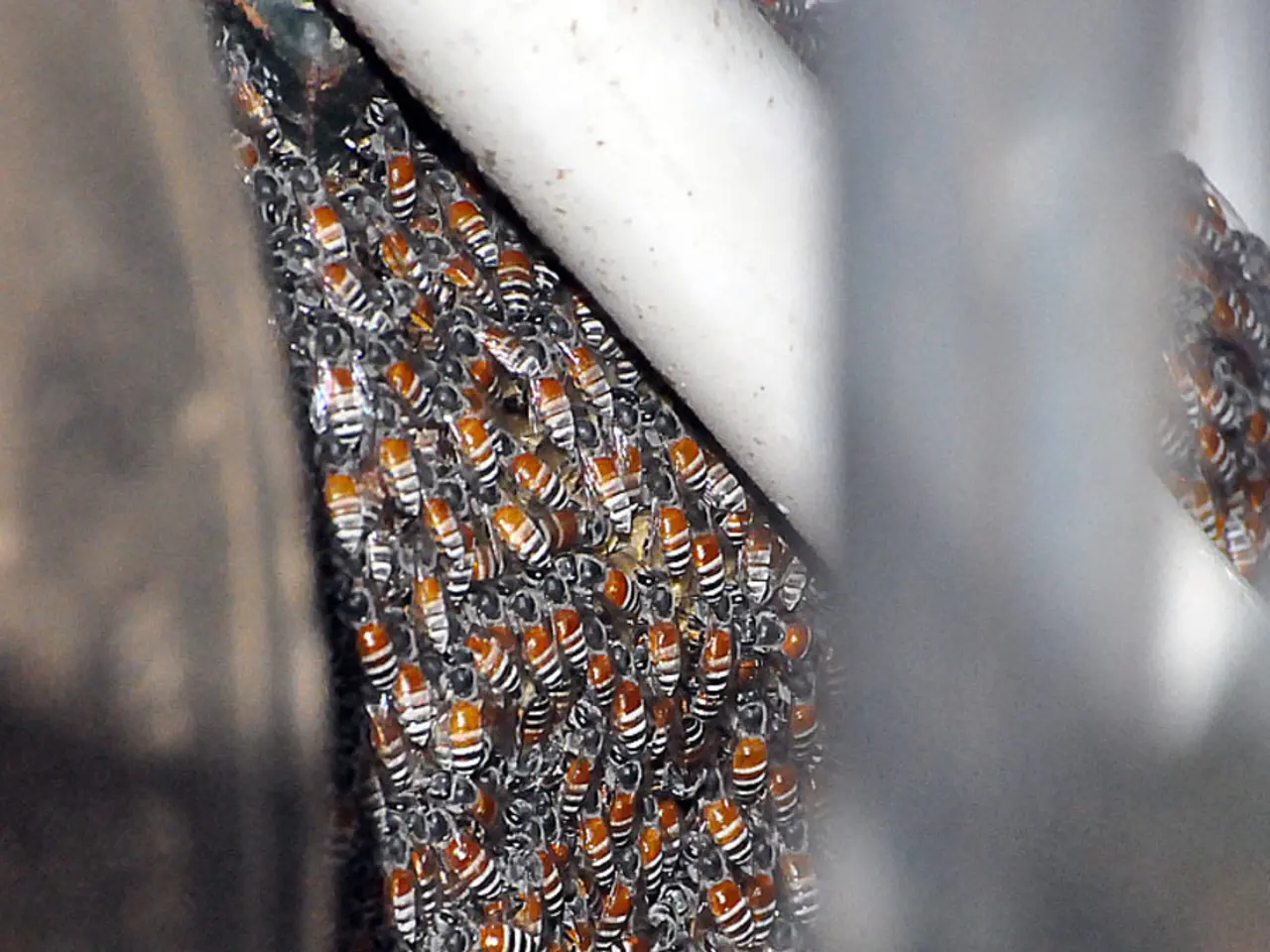Beekeepers Urge Public to Support Local Honey Producers
In a recent call to action, the European Beekeeping Association (EBA) has appealed to European Members of Parliament, Commissioners, and decision-makers to take immediate steps to protect European beekeepers, farmers, and consumers from the growing issue of honey adulteration. Boštjan Noč, the President of the EBA, has spearheaded this initiative.
The urgency of this matter is underscored by the fact that honey is one of the most commonly adulterated foods in Europe, with nearly 50% of the honey in Europe being fake, according to EU Commission data. This not only poses a threat to consumer health but also endangers the European bee, which is already facing challenges due to fake bee products and unfair competition.
The collapse of European beekeepers could lead to the end of bee pollination services, which are essential for food production in Europe. Every third spoonful of food in Europe depends on bee pollination, making the presence of bees and other pollinators necessary for the production of European food.
The new leadership of the European Union has been elected, and the EBA is urging them to prioritise this issue. The EBA is a general sponsor of their website and has over 300,000 beekeepers from 19 European countries. A PDF version of the information can be downloaded from their website.
The European Commission's Joint Research Centre (JRC) has conducted an EU-wide coordinated survey ("From the Hives" survey) on honey adulteration in 2021-22, publishing detailed open-access reports on advanced test methods. These include Liquid Chromatography–High-Resolution Mass Spectrometry (LC-HRMS) techniques to detect adulterants like mannose and unusual oligo-/polysaccharides, which were the main flags for suspicious honey samples in Europe[1].
The EU Food Fraud Network, supported by DG SANTE (Directorate-General for Health and Food Safety), actively coordinates cases of adulteration, including beeswax adulteration with paraffin or stearin, which also impacts honey quality. European Food Safety Authority (EFSA) has carried out risk assessments related to adulterated beeswax used in apiculture, indicating regulatory and safety efforts in the EU[4].
Statistics indicate that the EU has an estimated honey adulteration rate of around 11% as of 2022, which is comparatively lower than some other markets, such as Iran, where higher adulteration rates have been documented, highlighting ongoing challenges in regulatory enforcement[3].
Although specific details about the EBA's direct actions were not found in the search results, typically such organizations collaborate with scientific bodies and regulatory agencies to promote quality standards, support testing protocols, and advocate for stronger enforcement of honey authenticity laws.
For further information, visitors are encouraged to explore updates from the EU Food Fraud Network and EFSA on regulatory actions and risk assessments concerning bee products. They can also visit the European Commission's JRC publications on honey authenticity and adulteration testing methods for technical details and survey results. Lastly, reviewing communications from the European Beekeeping Association, which often publish position papers, guidelines, and news on combating honey fraud within Europe, is recommended.
The EBA is committed to protecting consumers from fake bee products and ensuring the sustainability of European beekeeping and food production. They will immediately contact decision-makers in the European area to find a solution.
1.The European Beekeeping Association (EBA) is urging the new leaders of the European Union to prioritize the issue of honey adulteration, given that science and health-and-wellness are at stake, as nearly half of the honey in Europe is fake.
- In line with the EBA's commitment to health-and-wellness and food-and-drink safety, they are collaborating with scientific bodies and regulatory agencies to promote quality standards, support testing protocols, and advocate for stronger enforcement of honey authenticity laws.
- As part of their efforts to combat honey fraud, the EBA also encourages general news consumption to stay informed about regulatory actions, risk assessments concerning bee products, and updates from organizations such as the EU Food Fraud Network and the European Food Safety Authority (EFSA).




